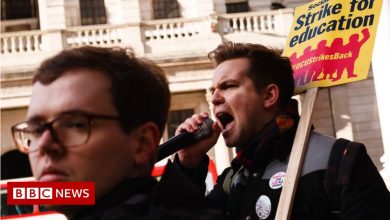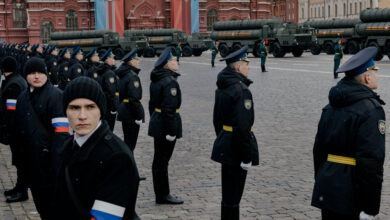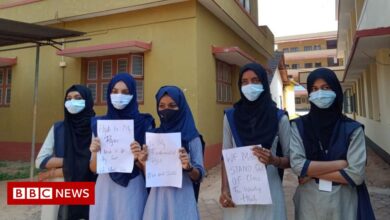Israel’s conscription law sparks outrage among Jewish extremists
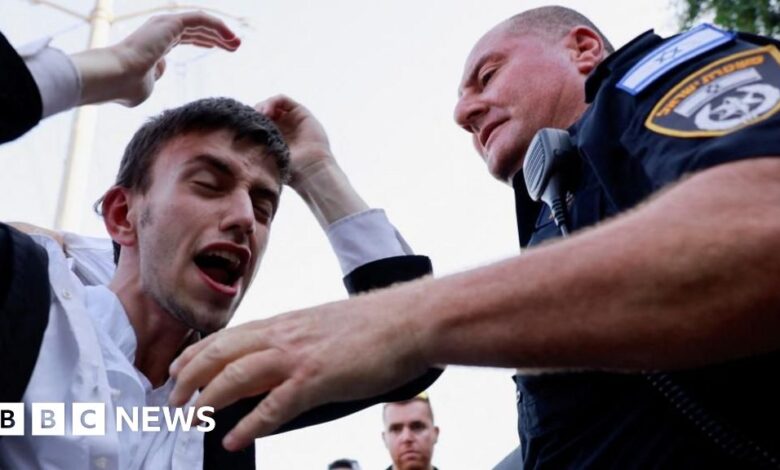
Via Yolande Knell, BBC Middle East Correspondent
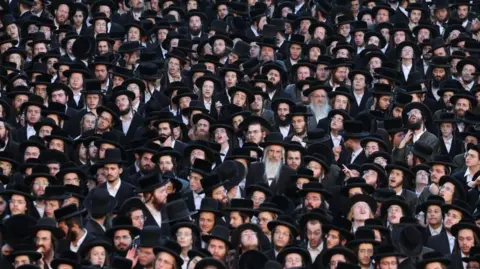 United States Environmental Protection Agency
United States Environmental Protection AgencyWhen Israel’s Haredi or ultra-Orthodox Jewish community comes together in large numbers, you realize how big they are.
Thousands of men and boys dressed in black and white packed the streets of Mea Shearim – home to the ultra-Orthodox Jewish community – in Jerusalem to protest against military service.
It is the latest protest since the Supreme Court’s historic ruling that young Haredi men must join the Israeli army and are no longer eligible for significant government benefits.
Young men who are full-time students at Jewish seminaries, or yeshivas, told me that their religious way of life is under threat. They believe that their prayer and spiritual study are what protect Israel and the Jewish people.
“We have been persecuted for 2000 years, and we survived because we studied Torah and now the Supreme Court wants to erase this from us, and that will cause our destruction,” Joseph said.
“Going into the army will make a religious Jew less religious.”
“The draft doesn’t help militarily. They don’t want us, the Haredim, the Orthodox Jews, they don’t need us,” another student told me, speaking anonymously because he did not have rabbinic permission to be interviewed.
“They just give us some dirty work there. They are there to make us not Orthodox anymore.”
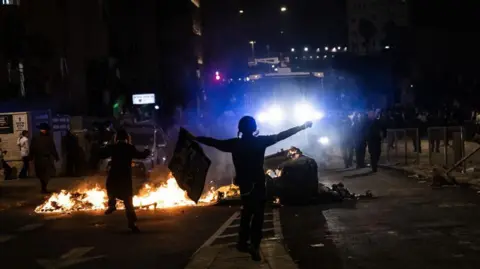 Anadolu via Getty Images
Anadolu via Getty ImagesFor decades, there has been debate about the role of the ultra-Orthodox Jewish community in Israeli society. Once a small minority, the community now numbers one million people, or 12.9% of the population.
Ultra-Orthodox parties have often played a political role in Israel, supporting successive governments led by Israeli Prime Minister Benjamin Netanyahu in exchange for continued exemptions from military service and hundreds of millions of dollars for their organizations.
It has long been a source of friction with Israel’s secular Jews, who largely perform compulsory military service and pay the bulk of its taxes. But the issue has now come to a head at a sensitive time, with the military facing unprecedented tensions after its longest-ever war in Gaza and a possible second war with Hezbollah in Lebanon.
“My son has been in the reserves for 200 days! How many more years do you want him to stay? How can you not be ashamed?” Mor Shamgar asked as she criticized Israel’s national security adviser at a recent conference in Herzliya.
Her angry complaint about her son – who is serving as a tank commander in southern Israel – was widely shared on social media.
While military leaders have complained about a shortage of military personnel, Ms Shamgar – who said she had previously voted for the prime minister’s party – believes the government has “handled the situation very poorly”, putting its own political survival above the national interest on the draft issue.
“Netanyahu and his gang made a huge mistake in thinking they could get away with it,” she told me. “Because once you impose on half the population that you have to go to war, you can’t impose on the other half not to go to war. It’s not even a secular versus religious issue. I see it as an equality issue. You can’t pass a law that makes half the population second-class citizens.”
Earlier this year, a survey by the Israel Democracy Institute found that 70% of Israeli Jews want to end military exemptions for extremist Jews.
Despite previous threats, the Jewish extremist parties have so far not left the governing coalition on the issue of military service, and are continuing to push for an older bill – previously rejected by Haredi leaders – that would have conscripted part of their community.
At an ultra-Orthodox synagogue in Jerusalem, men of various ages wearing prayer shawls gather for the morning service. Their conservative lifestyle is based on a strict interpretation of Jewish law and customs.
To date, only one Israeli army battalion, Netzah Yehuda, has been established to meet ultra-Orthodox demands for gender segregation with special requirements for kosher food and dedicated time for prayer and daily rituals.
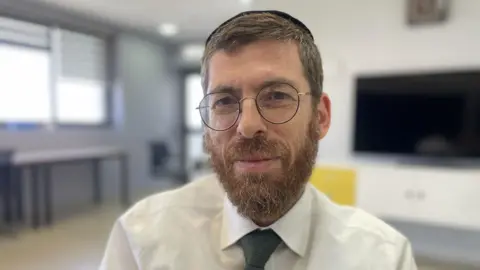
But an ultra-Orthodox rabbi who specializes in integration issues and is a board member of an NGO supporting the battalion believes more compromise can be reached and a new Haredi brigade should be created.
“The Haredim have to come to the table and say we are willing to make real concessions, we are willing to step out of our traditional comfort zones and take proactive action to find the right framework that allows more Haredis to serve,” said Rabbi Yehoshua Pfeffer.
He proposed that thousands of young ultra-Orthodox Jews who do not currently study Torah full-time – finding themselves unsuited to the rigors of learning – should be encouraged to join the military like other Israeli Jews of the same age.
In order for the Israeli military to live up to its reputation as the “People’s Army,” Rabbi Pfeffer also called for the military to do more to build trust and improve relations with his community. “There are a lot of adjustments that need to be made, but it’s not rocket science,” he commented.
So far, the process of implementing the ultra-orthodox draft appears to be gradual.
More than 60,000 ultra-Orthodox Jewish men have registered as students at Jewish schools and are exempt from military service. But since last week’s Supreme Court ruling, the army has been ordered to recruit only 3,000 more from the community, in addition to the roughly 1,500 already serving. The army has also been ordered to plan for even larger recruitments in the coming years.
Back in Mea Shearim, after nightfall, some protesters took a radical stance, throwing rocks at police and spreading out across Jerusalem to attack the cars of two Jewish extremist politicians they said had disappointed them over their military service.
Historically, this has been an isolated section of society that resists change, but now, with growing public pressure in Israel and the prospect of widespread war, change seems inevitable.

